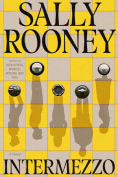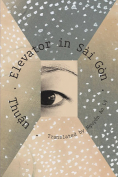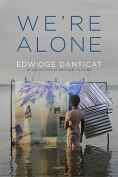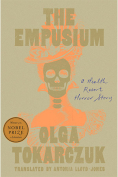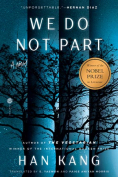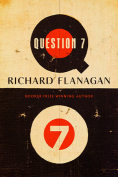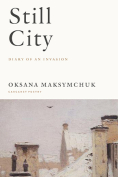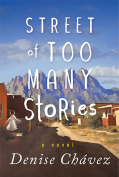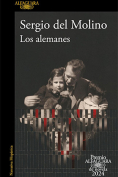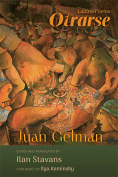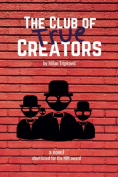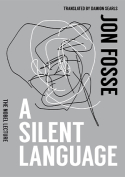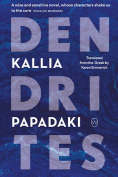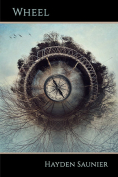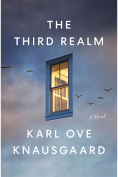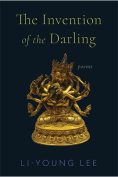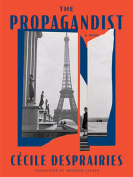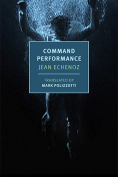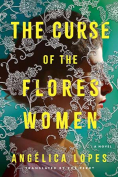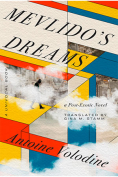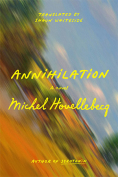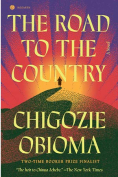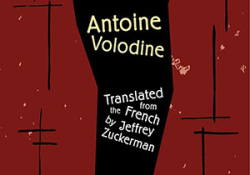Mevlido’s Dreams: A Post-Exotic Novel by Antoine Volodine
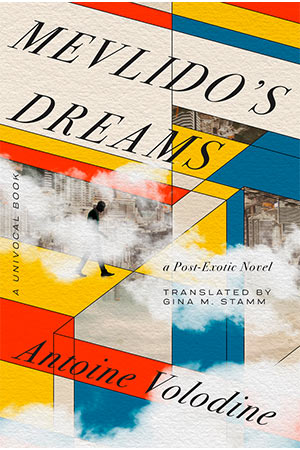 Minneapolis. University of Minnesota Press. 2024. 352 pages.
Minneapolis. University of Minnesota Press. 2024. 352 pages.
Billed as a postapocalyptic dystopian noir, Mevlido’s Dreams manifests flashes of multiple genres without ever fully committing to any. Alternatively, the prolific Antoine Volodine employs the self-invented adjective “postexotic” to describe his body of fiction (written under that name and multiple pseudonyms). Perhaps still not a perfect descriptor due to assumptions and connections exoticism might invoke, the term is meant to represent a literature where elements typically on the fringes of a novel or society become the focus. And vice versa.
Case in point: the plot of Mevlido’s Dreams and its narrative structure. A glance at the overall novel reveals a structure of seven parts with seven chapters, implying order and completeness both on its face and symbolically. The novel begins with a seemingly core plot thread for its eponymous protagonist. Mevlido lives within Henhouse Four, a lower-class neighborhood full of supposed criminals and revolutionaries under close monitoring by the corrupt police and broader autocratic government.
Though an accepted citizen of Henhouse Four, Mevlido simultaneously works for the police as a double agent. As for which side of this dysfunctional dystopia he is truly on, Mevlido himself might not even know. Instead, his central preoccupation has remained, for the last twenty years, memories of his wife and her accidental death. Now, Mevlido’s life collides with a woman who looks just like his wife, a possible terrorist who herself meets a gruesome end right before his eyes. Keeping information from his superiors, Mevlido begins an investigation into the identity of this doppelgänger, her motivations, and her possible connections to his former life.
Cue Volodine’s “narrative fluttering.” What began as a linear and relatively conventional (albeit extremely surreal) opening to the novel cosmically shifts into a seeming mixture of space/time realities. This is the full segue into Volodine’s postexotic enterprise, a turn from narrow focus on a linear plot about Mevlido into a broad and recursive foray toward understanding humanity. This narrative fluttering extends beyond just the plot and protagonist, becoming a chaotic fluctuation and blending of all sorts of factors: character names, identities, species, reliability, perspective, voice, language, mortality, etc. In meta fashion, Volodine even blends in himself and the hallmarks of his style, such as in a description of a novelist character, named Mingrelian, who appears in Mevlido’s Dreams:
[Mingrelian] has recourse then to the post-exotic technique of “narrative fluttering,” notwithstanding, unappreciated by [others]—who demand certain answers—and hatefully criticized by the adepts of official literature, who see in it yet another insult to their theory of fiction. As if the dark wind of the narrative were, at that key moment, incapable of finding a satisfying direction, the story folds back on itself bizarrely, gathers itself up, ready to rebound once more, and suddenly trembles upon itself.
This recursive property of Volodine’s postexotic writing fits well with the dystopian tones and themes of Mevlido’s Dreams. At their heart, characters seem committed to activism and honed purpose. But the chaos surrounding them (particularly Mevlido’s apparent fracturing reality) swallow them up within the world folding in upon itself, drowning everyone with a sense of futility and despair. Even the authoritatively controlling government of Mevlido’s Dreams seems to function on mere artifice, paradoxically oppressive yet absurdly without any actual control or effect.
The novel begins with a scene that highlights such an absurd situation to demonstrate control and order while really containing none of it: a theatrical “self-criticism” session of ritualized public confession by a police official. Later, Volodine includes a form of this more recognizable to readers, with the same basic principles: psychiatric sessions for Mevlido. All of this could be argued to be a Volodinian postexotic metaphor for the state of the human condition and mortality itself: never within our real control, despite all efforts to the contrary.
At this stage, it’s probably apt to quote a frequently recurring line in the novel: “Cut the bullshit, Mevlido.” One can read this novel and attempt a coherent and consistent interpretation of it, in full academic fashion. But all those airs aside, Mevlido’s Dreams is perplexing, full of pieces that defy explanation or simple interpretation. Again, probably just like life. For example, the world of the novel seems to lack a sun—in light or darkness governed only by the moon. What to make of this lunar significance? What is with Volodine’s fascination with spiders? With humans that are perhaps actually birds or birds that are perhaps actually human? With carefully chosen adjectives: a shocking green dress, a severe collar, the characters who all produce a distressed vowel? As one character admits to another toward the end of the novel: “At least, with you, there will be adjectives.”
I still have no answers to any of these things. But in the end they don’t really matter. What matters is that through all the eccentricities, the surreal landscape, and the postexotic narrative fluttering, Mevlido’s Dreams is profoundly interesting and compelling, with a unique linguistic cadence that Gina Stamm has diligently endeavored to render into English through translation of Volodine’s French that isn’t quite French. It’s a highbrow literature whose brilliance is hard to decipher or argue. But it’s also absolutely entertaining in its weirdness.
I would recommend that readers of Mevlido’s Dreams skip the introduction that prefaces the novel as it supplies a relatively complete summary of each part of the novel as well as ample potential interpretation. This text, while valuable and well composed, really should be set as an afterword to allow readers to discover the novel without too many signposts. The narrative fluttering and recursive nature of the novel also presented an idea to me once completing it, which might allow an enlightening experiment: reverse reading of Mevlido’s Dreams by starting with the final part and proceeding backward through them, or dappled reading where each of the seven parts are read in random order.
Any way one approaches it, it’s sure to be an adventure. We’re stuck to linearity with our lives; maybe one can discover more about human life through an exercise that permits mixing things up, a little or a lot.
Daniel P. Haeusser
Canisius College

